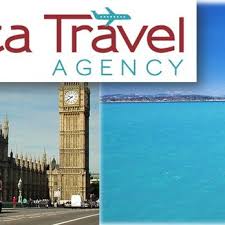The Ultimate Companion: Best Travel Guide Books
When it comes to planning a trip, having the right travel guide book can make all the difference. From detailed maps and insider tips to cultural insights and must-see attractions, a good travel guide book can enhance your travel experience and help you make the most of your journey. Here are some of the best travel guide books that every wanderlust should consider:
Lonely Planet
Lonely Planet is a household name in the world of travel guides. Known for its comprehensive coverage, detailed maps, and expert recommendations, Lonely Planet guides are essential for travelers looking to explore destinations off the beaten path.
Rick Steves’ Europe Through the Back Door
Rick Steves’ guidebooks are perfect for travelers interested in experiencing Europe like a local. With a focus on culture, history, and practical advice, Rick Steves’ guides offer valuable insights that go beyond typical tourist attractions.
DK Eyewitness Travel Guides
DK Eyewitness Travel Guides are renowned for their visually appealing layout and rich content. Packed with stunning photographs, illustrations, and detailed information, these guides provide a comprehensive overview of each destination.
Rough Guides
Rough Guides cater to adventurous travelers seeking authentic experiences. With in-depth cultural insights, off-the-beaten-path recommendations, and budget-friendly tips, Rough Guides are ideal for independent explorers looking to delve deep into a destination.
Whether you’re planning a solo adventure or a family vacation, investing in a quality travel guide book can enhance your trip in countless ways. So before you embark on your next journey, be sure to pick up one of these best travel guide books to enrich your travel experience.
Top 9 Frequently Asked Questions About the Best Travel Guide Books
- Which travel guide books are the best?
- Which is the best guide book?
- Did Stack and Mel leave Travel Guides?
- Which is best Lonely Planet or Rough guide?
- Which travel guide is the best?
- What’s better, Fodor’s or Lonely Planet?
- How do I find a good travel guide?
- Which is better Rough Guides or Lonely Planet?
- Are Lonely Planet guides worth it?
Which travel guide books are the best?
When it comes to determining the best travel guide books, it ultimately depends on individual preferences and travel styles. Some popular choices among travelers include Lonely Planet for its comprehensive coverage, Rick Steves’ Europe Through the Back Door for its local insights, DK Eyewitness Travel Guides for their visual appeal, and Rough Guides for off-the-beaten-path recommendations. Each of these guidebooks offers unique features that cater to different interests and needs, making them valuable companions for enhancing travel experiences. It’s recommended to explore various options and select a guidebook that aligns with your specific destination, interests, and travel goals to make the most of your journey.
Which is the best guide book?
When it comes to the frequently asked question of “Which is the best guide book?”, the answer ultimately depends on individual preferences and travel styles. Each traveler has unique needs and interests, so the best guide book for one person may not necessarily be the best for another. It’s essential to consider factors such as destination, type of travel experience desired, level of detail required, and personal preferences when choosing a guide book. Exploring different options from reputable publishers like Lonely Planet, Rick Steves, DK Eyewitness Travel, and Rough Guides can help travelers find a guide book that aligns with their specific interests and enhances their overall travel experience.
Did Stack and Mel leave Travel Guides?
I’m sorry, but I couldn’t find any information about Stack and Mel leaving Travel Guides. It’s possible that this question pertains to a specific show or platform that I don’t have access to. If you have more context or details, feel free to provide them so I can assist you better.
Which is best Lonely Planet or Rough guide?
When it comes to choosing between Lonely Planet and Rough Guides as the best travel guide book, the decision ultimately depends on your travel preferences and style. Lonely Planet is known for its comprehensive coverage and practical information, making it a popular choice for travelers seeking detailed recommendations and insider tips. On the other hand, Rough Guides are favored by those looking for off-the-beaten-path destinations, cultural insights, and budget-friendly options. Both guidebooks have their strengths, so it’s recommended to consider your travel priorities and desired experiences to determine which guidebook aligns best with your travel needs.
Which travel guide is the best?
When it comes to determining the best travel guide, the answer ultimately depends on individual preferences and travel styles. Some travelers may prefer the comprehensive coverage and expert recommendations of Lonely Planet guides, while others might gravitate towards Rick Steves’ Europe Through the Back Door for its focus on cultural immersion. DK Eyewitness Travel Guides are praised for their visually appealing layout and detailed information, appealing to those who appreciate visual aids in their travel planning. On the other hand, Rough Guides are favored by adventurous explorers seeking off-the-beaten-path experiences and cultural insights. Ultimately, the best travel guide is one that aligns with your interests, travel objectives, and preferred style of exploration.
What’s better, Fodor’s or Lonely Planet?
When it comes to the debate between Fodor’s and Lonely Planet as the best travel guide book, it ultimately comes down to personal preference and travel style. Fodor’s is known for its detailed itineraries, upscale recommendations, and focus on luxury travel experiences. On the other hand, Lonely Planet is renowned for its comprehensive coverage, budget-friendly tips, and off-the-beaten-path suggestions. While Fodor’s may cater more to travelers seeking a higher-end experience, Lonely Planet appeals to those looking for a more adventurous and immersive journey. Both guidebooks have their strengths and cater to different types of travelers, so choosing between them depends on your specific travel needs and preferences.
How do I find a good travel guide?
When searching for a good travel guide, it’s essential to consider your specific needs and preferences. Start by determining the type of travel experience you’re seeking, whether it’s cultural immersion, adventure, relaxation, or a combination of these elements. Look for guidebooks that align with your interests and provide detailed information on the destinations you plan to visit. Consider factors such as the credibility of the publisher, the expertise of the authors, and the relevance of the content to ensure you find a travel guide that resonates with your travel style and helps you make the most of your journey. Additionally, reading reviews from fellow travelers can offer valuable insights into the quality and usefulness of a particular guidebook before making your selection.
Which is better Rough Guides or Lonely Planet?
When comparing Rough Guides and Lonely Planet, it ultimately comes down to personal preference and travel style. Lonely Planet is known for its comprehensive coverage, detailed recommendations, and practical information, making it a popular choice for travelers seeking well-rounded guides with a focus on mainstream attractions. On the other hand, Rough Guides are favored by those looking for off-the-beaten-path destinations, cultural insights, and budget-friendly tips. If you prefer a more adventurous and immersive travel experience, Rough Guides may be the better option for you. However, if you value thorough research and detailed maps in your travel guide, Lonely Planet could be the ideal choice. Ultimately, both guidebook series have their strengths and cater to different types of travelers, so it’s worth considering your travel preferences before deciding which one suits you best.
Are Lonely Planet guides worth it?
When it comes to the question of whether Lonely Planet guides are worth it, the answer often depends on the individual traveler’s preferences and needs. Lonely Planet is known for its extensive coverage, insider tips, and detailed recommendations, making it a valuable resource for those looking to explore destinations thoroughly. Travelers who enjoy independent exploration and off-the-beaten-path adventures may find Lonely Planet guides particularly beneficial. However, some travelers may prefer more specialized or niche guidebooks tailored to their specific interests. Ultimately, determining if Lonely Planet guides are worth it comes down to how well they align with your travel style and priorities.





